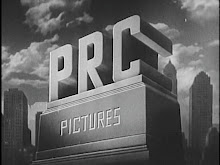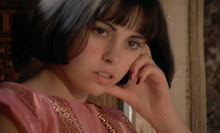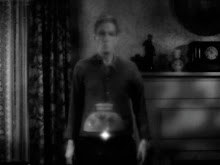
Every summer Concordia University in Montreal plays host to North America's greatest genre film festival.
A couple days after arriving back from beautiful Montréal's incredible, annual Fantasia Fest, I've plucked some favorites from my overcrowded brainpan.
1. Love Exposure (Sion Sono, 2008): What an experience! A four hour perverted paean to love that coasts along with uniquely Japanese pop charm. Exhilarating, cross-cutting montages meld with heartbreaking melodrama with the stamina of a marathon runner. Seeing it with a sold out enthusiastic audience---God bless those daring young Québécois---was the highlight of a strong festival week.
2. White Lightnin' (Dominic Murphy, 2009): I've not seen the well-regarded documentary Dancing Outlaw, nor did I manage to see the follow-up doc The Wild and Wonderful Whites of West Virginia (which also played at this year's Fantasia), so I was a wee innocent to the exploits of mountain dancin', gas huffin' Jesco White. This is the film Walk the Line never coulda been, a truly debauched and thoroughly rollicking bit of psychosis! Filmed in Desatura-Vision in the wilds of West Virginia and...Croatia!
3. Die Schneider Krankheit (Javier Chillón, 2008): A faux-documentary short film should be awful, but this 10 minute gem shot on 8mm Tri-X stock is brilliant. It's a mocked up German newsreel about a mysterious pandemic and science's strange efforts to contain it, including the breeding a leech-turtle hybrid. Guy Maddin should be envious.
Here's a brief trailer:
4. The Clone Returns Home (Kanji Nakajima, 2009): Refreshingly quiet, this cosmic vision of regret, sadness, and loss of identity is enriched with lovely imagery of Japanese countryside. It gave me goosebumps.
5. House (Nobuhiko Obayashi, 1977): In stark contrast to the painterly beauty of the previous film, lays House. Resurrected in vivid HD, this collage of a film engulfs the audience in cliché, kitsch, and lysergic imagery straddling the line between cartoon and genuine madness. Definitely overdone in every respect, it nevertheless projects a primal love of cinema.

Smoked meat! Bagels! Poutine!!! Fantasia's disturbing subway posters.
After bingeing on movies and Tim Hortons coffee (“Toujours Frais,” indeed) for a week reality starts to slip away, screenings run together in my mind (the two Clive Barker adaptations that premiered, Book of Blood and Dread have congealed into one lumpen mass). Such is the overwhelming joy of Fantasia.



































